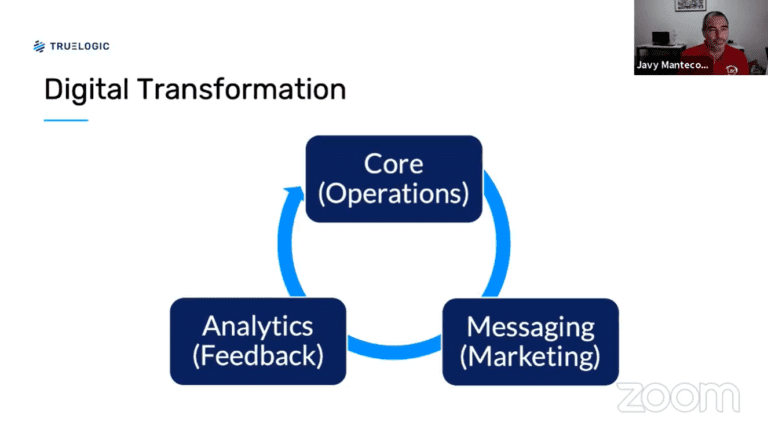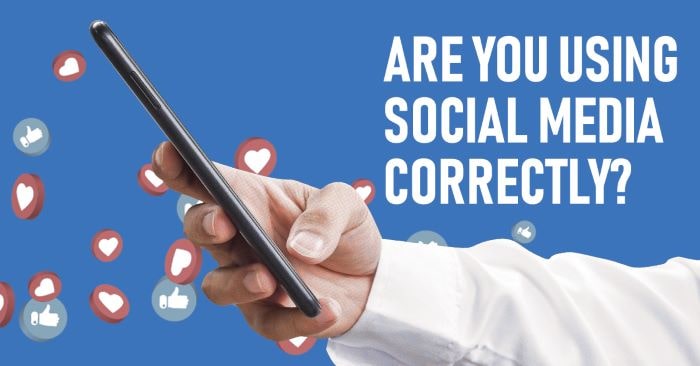Truelogic Episode 25 Recap: Why is SEO Vital to your Business Growth?

When people go to find a product or service online, it all starts with a search. At least 68% of online experiences start with a search engine. This proves how vital SEO is to your business and ensuring your brand is at the top of the search results.
While achieving great SEO results does take time, it’s an investment worth making. Learn more about the importance of this digital marketing strategy to your overall business success in today’s Truelogic podcast.
Podcast Transcription:
Berns San Juan: Hi guys. Welcome to another episode of the Truelogic DX Podcast. I think as you guys might expect, I’m gonna do SEO again, like whenever I can, because this is what I do as a trade. Like specifically personally, for me, I am a search marketer. This is what I am very passionate about. It’s what I spent the most money on research, it’s what I do personally. Whenever I try to get involved in the day-to-day operations of the business, this is where I find myself involved.
SEO Statistics You Need To Know
I’ve always thought, like if you had asked me 10 years ago, SEO was a great innovation to your business. Today, it’s not an innovation. It’s essential. Today, we’re going to talk about the powerful impacts that SEO could have on your business. I think most of you guys already know when people go to find a product or service online, you probably begin with a search, right?
According to Google, 68% of all online commercial experiences begin with a search. And I think that’s very vital. That shows you how vital search is for most people that are online, especially for the millennial generation and Gen Z generation. Remember, these guys do not go online. They live online, right? And what I wanted to stress was Google services consist of over 35 billion searches a month.
A billion of that comes from the Philippines. There are over a billion searches that happen in the Philippines every month. That’s incredible. In 2020, Google beat Facebook as the most visited page in the country, right? This means people were looking for services, they were looking for information.
They were looking to satisfy search motivations. And so in today’s podcast, we are going to talk about why SEO is so important to the success of your business, and why it ought to be one of the pillars of your digital marketing strategy for you to achieve any form of success in today’s market.
What is SEO and why does it matter?
In a nutshell, Google serviced almost a trillion searches in this year alone. According to Bright Edge, organic search drives over half of all website traffic on the internet today. Most of the results, unsurprisingly like specifically the top four to five results account for 67% of all referral clicks to websites, and SEO in my experience has a significantly better ROI than just any other marketing channel outcome, maybe short of email marketing because email marketing is cheap. You can scale it up easily. I think out of all of the marketing tools out there, SEO is the only one that sort of drives itself off of its momentum.
- Higher conversion rate
In our experience, the metrics we give ourselves are anywhere. From 1:15 to 1:25 in terms of returns in real estate, we have a 1:80 return on investment result, in terms of SEO, and leads that are generated from SEO, we have a higher conversion rate than leads that are generated from social media than leads that are generated from AdWords or from any other digital marketing channel for that matter.
- Drives the most number of lead acquisitions
And that’s probably because it takes from the same page. If you guys read permission marketing. It’s because the user starts the search experience, right? It’s a highly motivating activity. A user must have wanted to know something, learn something, go somewhere, do something, or buy something for the search experience to even begin. So that’s why it sort of makes sense that it drives the most number of lead acquisitions that you can have now.
I’ve always told people if you’re looking for qualified leads, then you begin with the keywords. However, SEO is not just about winning as many keywords as you can. It’s about optimizing for the right keywords.
I’ll give you a great example. Ranking for an SEO company and SEO company, Philippines. These two keywords alone already have very different implications. A local company will probably type in SEO company on google.com.ph while a foreign company that is looking to outsource its SEO or is looking for a more economic solution to its SEO will probably type in SEO company geo-location. So just by adding the word the Philippines, you changed the persona of the user performing the search. And so if a brand participated in SEO, it was going to have a big impact on the SEO performance of the campaign. Its biggest impact is in keyword selection.
Now, the other impact is in the buying cycle because the keyword you choose determines the pages you build. So, I’ll repeat that. The keywords you choose determine the pages you build. So, I’ll give you guys again, another example, I think it’s not a secret.
- SEO is momentum-driven
I’ve mentioned it before. I am a fan of the ASUS ROG brand. And if I were working on that brand, one of the things that I would look at first is take, for example, the tool that I use to record these podcasts is an ASUS ROG flow Z 13, right? And if I were ASUS, one of the first things that I would look for, or one of the first things that I would check for, is my website number one for my brand name because if I’m not number one for my brand name, like let’s say, if somebody looked for ASUS, ROG Z 13 reviews, ASUS ROG, Z 13 specs. Those are examples of people that are either in the consideration phase or in the informational phase. And if you don’t give you don’t give them reviews or specs on your website, a third-party website will, right?
So would you rather people satisfy their consideration experiences of your funnel or their informational experiences in your funnel, in your website, or on another person’s website? My favorite thing about SEO is that it’s momentum-driven because it can take time to see results.
Its greatest strength is that it’s momentum driven. It takes a while to lose your results. So you don’t drop off just because you ran out of budget. That doesn’t mean your SEO results disappear, right?
- SEO is very relative
If you are ranking for certain keywords, don’t pick up your competitors. Don’t step up their game. You are likely to stay number one, number two, and number three for the foreseeable future. The only time you perform the worst is when a competitor decides to do better than you, so it’s very relative. So until your competitors wake up and they want your rankings, they want your traffic, they want your audience until they start working on it, which will take some time.
- It is a long-term strategy
You’ll probably enjoy the results of your SEO for a prolonged period. A prolonged period is reasonably about six months to two years. So it’s a long term strategy. I would say it’s a mid to long-term strategy, but it carries great results. I’d like to say that better search results usually mean better impressions for your brand and more brand visibility. You’ll probably notice that the brand searches for your brand name improve the more you do SEO, which is true, it’s something we’ve observed over time.
- SEO is cost-effective
Executing SEO though is not cheap, right? A great SEO professional is gonna cost you not an arm in the leg, but it’s gonna cost you. But, I think like in most things in life, you’ll get what you pay for. You get an excellent agency, an excellent professional on your side, and you’re bound to get great results, or you’re bound to get great returns on your investment. So when I say SEO is cost-effective, what I usually mean is the amount of return that you will get from an SEO exercise.
I think in some of the examples that I gave you, I think the lowest we’ve ever seen on SEO might be one is 12. Typically we see it range from 1:15 to 1:25. With some real estate companies, we work on our ROI which is 1:80. And on some of the more niche ones, our ROI, like 1:12, which is, that’s a bit on the low side but that’s still 12 times the amount of money you put into the SEO. And that’s still a pretty good investment.
- Assists in building trust and credibility
The more Google trusts you, the more audience trusts you. One of the biggest changes I think that SEOs went through in the past, I would say 10 years might be less, is one of the things that Google has always advocated for, which SEO didn’t necessarily listen to. Google had always said build for the user. Don’t build for the bot build for the user, but it took a lot of algorithm updates.
There are just so many things that Google rolled out so that webmasters and brands could get the message that they want websites to be built for users first. And I would say today’s standards are very friendly to users. And so most of the qualified SEOs you guys will talk to are going to be very user-centric.
- Enhances customer engagement and user experience
They’re going to say it took me more than three clicks to find this product. This product is way too deep inside your website. These web pages are too slow. This page is wonky when I load it. All of those have user experience implications. And so I think implementing SEO on your web pages enhances the customer experience on your site, whether you’re looking to engage your customer, whether you are looking to convert your audience into a lead. It doesn’t matter. It just creates better user experiences overall.
- Get quantifiable results
Now, one of the reasons search marketing is my favorite is because it is super quantifiable. I know where I got the traffic. When I got the traffic, what pages did they visit? Did they permit me to market or sell to them on the first roll? Were they repeat visitor by the time I gained that permission to the marketer to sell to them, all of these is measurable inside Google analytics, specifically the new GA4, which measures engagement metrics, if you are e-commerce, it measures even that.
- Stand out from competitors
So ultimately I think if you are not investing in SEO, your brand is sort of asking for trouble, right? Because chances, if you’ve got a tech-savvy competitor in the market. then they’re probably going to leave you in the dust. A lot of customers are digital first. Now many customers are mobile. First, many customers are digital-first and they will look for their options online. They will look for their providers online. They will satisfy their awareness, their information, their preference, their consideration, and their conversion motivations online.
If you are not one of those players, then you’re sort of seeding the field to your competitors. Now in the Philippines, and I think for most of Southeast Asia, this is still true. It’s still very blue skies, meaning, the opportunities are still there. if you’re not working on first mover advantage on SEO, you’re probably second or third mover. It is a rare industry in the Southeast Asian region where I would say, except for insurance, they’ve gotten pretty savvy and except for real estate who has also gotten pretty savvy, you’re probably going to be against zero to three competitors at best and so the ability to be a first, second, third, or fourth mover. It is still there.
And so I strongly encourage you guys that if SEO is not part of the toolkit that you guys have, I strongly encourage you guys to start implementing it. The return on investment is terrific. You’re looking at an average of anywhere between 1:15, 1:21, and 1:25, and can be higher in certain situations.
- Improves return on investment
Now the last thing I haven’t mentioned yet, though, and why I’m such a fan of organic search. Being SEO optimized does not only give you a good ROI for your SEO program. It improves the return on investment on your other paid channels. So take Google AdWords as an example. If you had no organic visitors and Google requires that you have about a thousand visitors to your website, before you can create a Remar, what’s called a remarketing audience, meaning profiles of people that you can follow around with your ad for an extended amount of time. If you had no organic visits, then you would have to pay for every visitor to land on your website.
Once they’ve landed, only then are you able to create a remarketing audience that you can chase with your ads only then can you create ads that will keep you top of mind with SEO, that audience type is free. You just have to define it inside. You just have to define that audience inside your analytics. So, that’s one advantage that you can do.
Two, audiences like Facebook and Google are now very cross-compatible. If you can define an audience on Google, you can utilize the audience on Facebook. So if you’ve created custom audiences on your website that you utilize on AdWord, I’d say, why not cross-pollinate that into Facebook campaigns that you guys are running? That’s another reason why you ought to do that. So Facebook, like me, is traditional, used for top-of-funnel campaigns. And then only for specifically bottom-funnel, I don’t do any mid-funnel campaigns on Facebook, so I don’t do information and preference. I do lead gen on Facebook and we do brand awareness on Facebook. But for AdWord, it is either super top funnel like meaning impressions, cost per mill, but it’s also very top funnel and bottom funnel. SEO is the most effective strategy from top to mid-funnel. If you wanna be persistent, if you want to have cost-effectively acquisition, then the cheapest way to drive awareness is SEO.
The cheapest way to educate your audiences with SEO, the cheapest way to tug on their heartstrings is SEO. And the cheapest way to gain their permission to sell or to market to them is SEO. It’s not necessarily the cheapest way to convert them because SEO’s not persistent. The user is always the one that begins the interaction, which is in my opinion, what makes it great. But ultimately it is terrific for all of those sections in the funnel. And then you can choose to augment your SEO performance with your AdWords or with your social media campaigns, either at the top or at the bottom of the funnel.
And I’ll wrap it up at that. If you guys have any questions or would you like to dive deeper into this topic? Let me know. And we’ll do another episode on SEO. I hope you enjoyed this episode as much as I enjoyed doing it with you. Truelogic DX is powered by Podmachine. If you enjoy today’s episode, don’t forget to subscribe to our Spotify, Google, and Apple accounts and set up your alert for new episodes. We’ll see you in the next episode.










